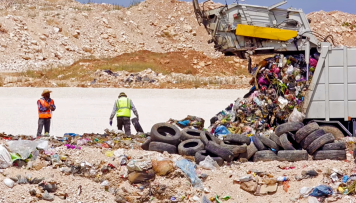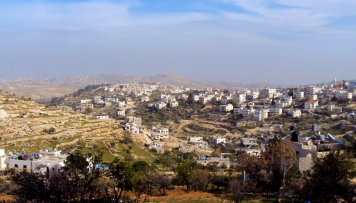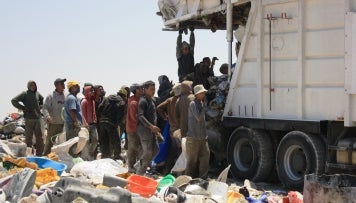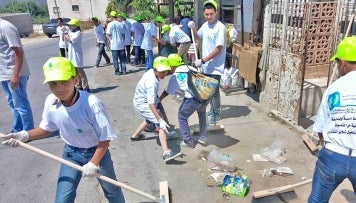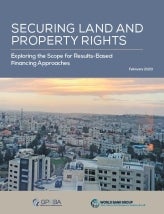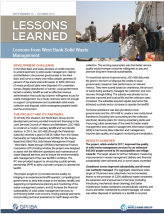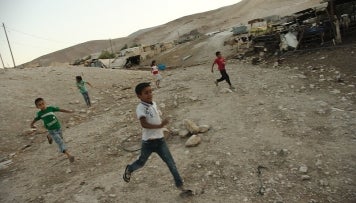
Photo: Peter Tkac via Flickr (CC BY-SA 2.0)
Try to imagine a well-functioning economy without having secure land tenure and property rights established. Would investors and service providers enter such a risky environment? Would banks be wary of offering and lending? Could conventional commerce or business transactions even operate optimally? Not likely, as any commercial system hoping to operate must have trustworthiness as one of its economic pillars, much of which is placed on legally registered land and property administration and the integrity of their institutions.
Still, the absence of legally protected land and property ownership is disconcerting which calls for action. It is estimated that only 30% of the global population has legally registered rights to their land and homes. Land is encompassed within 8 targets and 12 indicators of the Sustainable Development Goals (SDGs).
Securing land tenure is key to urban development, sustainable agriculture, environmental protection, and job-creating investments. It can help women to become economically empowered, support indigenous communities’ rights, foster peace and mitigate fragility. Financing the development of such a plan requires targeting and accountability.
A result- based approach ensures implementation focuses on schemes on what matters, helping the most vulnerable and marginalized communities to help bridge the financing gap they face in seeking access to land tenure.
The Context for Applying Results-Based Financing Solutions
Results-based financing (RBF) has had success in social sectors such as health and education, as well as in improving access to solid waste management, water & sanitation and energy, yet it has had limited application in securing land tenure. RBF’s cross-sectoral experience has shown that it can support the development of well-targeted approaches and could be used to implement programs with systematic and modernization targets, similar to land registration initiatives and property management systems. These RBF approaches can be developed either as a gap-funding mechanism, an incentive-driven framework or hybrid schemes tailored to public-private partnerships (PPPs).
A recently approved project in the West Bank is piloting RBF to support systematic property registration as well as women by providing equal access to land tenure and property ownership. This is a test case to see if RBF can be added to the development financing toolbox which seeks land tenure security and gender equality, such as the Stand for Her Land Initiative.
RBF-supported property rights provide a foundation for post-conflict reconstruction, support stabilization and mitigate future conflict. For example, people displaced by violence or natural disasters can return and continue their livelihoods when land tenure is secured. This involves strengthening civic engagement, rebuilding trust in governmental institutions, and reducing tensions and grievances between groups over services.
GPRBA has funded over $150m RBF programs in fragile and conflict-affected situations. These cases have also shown that program design and flexibility, along with targeted technical assistance throughout the project cycle are the best predictors of eventual success. RBF is most effective in places showing signs of recovery, and where government institutions are relatively stable and increasing in legitimacy. In helping provide basic services to targeted groups and increasing service provider accountability, RBF interventions help break the cycle of fragility and violence -and contribute to enhancing peaceful stability.
Up-to-date technological solutions are key to land administration operations, but many agencies have neither the resources nor the capacity to apply these systems to optimize their land administration services (LAS). Application of RBF approaches could ensure information technology’s functionality, use and delivery for better service --- and encourage agencies to keep pace with the progress and procurement of technological solutions and updates for fully functioning LAS and its benefits.
The SDG on land ownership sets an ambitious target of 70 percent tenure security by 2030. Achieving this will require increased funding, continuous work on legal and policy frameworks, and mobilization of technological solutions. Take a closer look at RBF which can increase access to financing land tenure security and LAS modernization, with incentives to public and private service providers targeting specific groups. Institutions, donors and investors can all benefit from the transparency and accountability required by results-based approaches.

